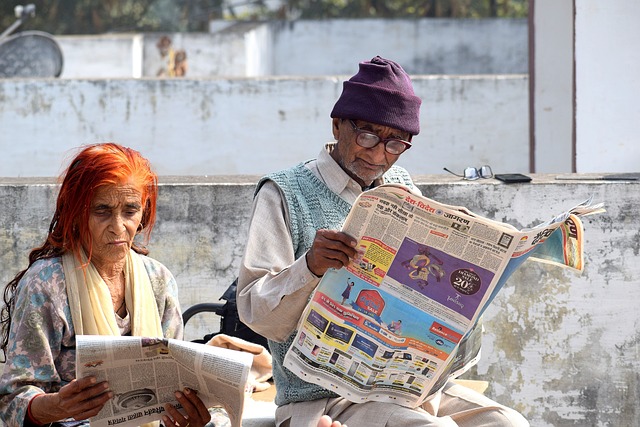Fie on Newspaper Endorsements
There has been little short of a metaphorical nuclear explosion pursuant to The Washington Post’s owner’s, Jeff Bezos’, decision not to have his newspaper endorse a presidential candidate in 2024 or going forward. There are others, such as USA Today and The Los Angeles Times, but the Post will serve as a representative example.
Let me first list my credentials to evaluate newspaper editorial publishing issues: I founded and taught for 20 years the course Media Criticism at Towson University. This was a course that evaluated media intentional and unintentional political bias to the extent that it existed. The course itself took no political positions save to reveal said bias wherein it occurred.
Owner Jeff Bezos in an articulate defense of his policy stated: “What presidential endorsements actually do is create a perception of bias. A perception of non-independence. Ending them is a principled decision, and it’s the right one…[N]ow more than ever the world needs a credible, trusted, independent voice, and where better for that voice to originate than the capital city of the most important country in the world?”
The reaction by the Post’s editorial staff has ranged from disagreement while acknowledging Bezo’s right to do so, to strong outraged appalment to literal resignation in disgust.
No one, save Bezos, so far has supported the decision in print at the Post…
There has been no claim thus far that there is any censorship of the anti-conservative or anti-Trump vitriol that inhabits the Post.
Every day there is found in the Post increasing liberal – and particularly anti-Trump — bias, often in its news pages through its agenda choices and spin choices and flooding its editorial and op-ed pages.
We are concerned with the latter two in this piece.
The Post’s writers and style pages comprise writers who are incapable or unwilling to see any good in Donald Trump, such as his accomplishments while president, or any serious deficiencies in Kamala Harris. Their takes on Vice Presidential nominees J.D. Vance and Tim Walz reflect the same biases without extreme condemnation or praise respectively.
Post columnists Ruth Marcus, E.J. Dionne, Dana Milbank, Karen Tumulty, Jennifer Rubin, Erik Wemple, and Perry Bacon support Harris and detest Trump with varying degrees of spiteful writing, while their best columnist – and to this critic, the best columnist in the country — George F. Will, has contempt for both parties while maintaining his conservative values in dignified and literate columns.
The only positive-on-Trump prose in the Post comes from Mark Thiesson. Had the Post added a good conservative to replace the late Charles Krauthammer, it would have had some additional good and bad takes on Trump and critical takes on Harris, and not the same hoary non-specific generalities of Trump’s being a threat to democracy and Harris’ being a breath of fresh air.
There are three general reasons for no endorsement in newspapers, and they are the same as reasons for balance on newspaper op-ed pages and even on editorial pages: expanding political influence and financial solvency.
The criterion of political influence has been sought ever since Bob Woodward and Carl Bernstein’s investigation of Watergate led, it is consensually perceived, to the end of the Richard Nixon presidency. Reporters since rarely believe they should just report the news. They want to significantly influence politics and elections because they and only they know what is best for their cities, states, and country. Endorsements are their vehicle; take those away, and they are almost back to what they regard as pre-Watergate impotence.
The other factor, financial stability and growth, on which the first depends, already had been compromised at The Post and is exacerbated by readers’ subscription-ending and resignations at the newspaper, but can be saved by the new owner, Bezos, whose pockets seem bottomless.
No one at The Post seems threatened by financial losses, but without their new bête noire, Bezos, perhaps they should prospectively.
The end of presidential endorsements – but not senatorial and others? — would be a salutary return to the days wherein newspapers were a source of news, not smart but judgment-challenged journalists who are frustrated by their relative lack of influence.

Richard E. Vatz https://wp.towson.edu/vatz/ is a Distinguished Professor Emeritus of political rhetoric at Towson University and author of The Only Authentic of Persuasion: the Agenda-Spin Model (Bookwrights House, 2024) and over 200 other works, essays, lectures, and op-eds. He is the benefactor of the Richard E. Vatz Best Debater Award at Towson. The Van Bokkelen Auditorium at Towson University has been named after him.

